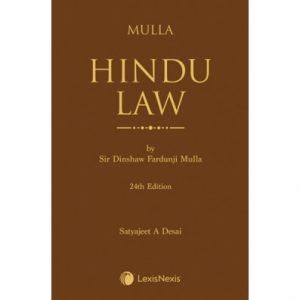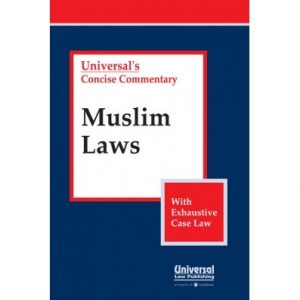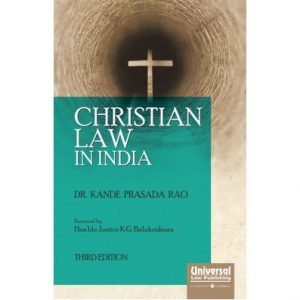Family Law in India: An In-Depth Discussion and Historical Perspective

Family law, in India is a diverse field that governs the intricacies of relationships within families. It covers a range of issues, including marriage, divorce, child custody and inheritance. This comprehensive guide aims to explain the aspects of family law in India such as Hindu law, Muslim law, Christian law, Parsi law and the Special Marriage Act of 1954. Additionally, we will explore the development of family law in India and highlight its origins and significant milestones.
We will also navigate through the complexities surrounding divorce and financial support under Hindu family law, dissolution of marriage under family law, Christian family law practices and Parsi family laws and recommend some of the best books on family law in India that can help you gain more in-depth knowledge. Furthermore, we will examine topics like child custody and support, adoption and guardianship procedures while also discussing remedies available, for victims of domestic violence through protection orders.
Understanding Family Law in India
The Family law in India can also be referred to as matrimonial law, as it covers most of the aspects arising out of a matrimonial relationship. It is one of the broadest branches of civil laws dealing with various legal problems revolving around families in one way or another. It is the foundation of the legal framework dealing with family life in India, and which covers diverse range of issues and rules influencing life of citizens and their families all over the country.
What comes under family law?
Marriage, Divorce and Maintenance Under Family Law:
Hindu Marriage Act, 1955: It serves as an indispensable foundation to the law of family in India, covering most facets of Hindu marriage. In line with this law, there exist details on how marriage ceremonies should be carried out, conditions for a legitimate union, as well as what spouses should do and not to. The act also deals with problems associated with issues of monogamy and polygamy within a Hindu marriage as well as voidable marriages.
The Hindu Marriage Act of 1955 plays a role, in guiding the process of divorce. It outlines reasons for divorce such as adultery, cruelty, desertion, conversion, mental illness and more. Additionally, it addresses an aspect of providing support to the dependent spouse during and after divorce proceedings through Section 24.
Related Read: Divorce Under Hindu Marriage Act, 1955
Hindu Succession Act, 1956:
Another significant law that governs inheritance rights among Hindus is the Hindu Succession Act of 1956. This legislation establishes guidelines for distributing property among legal heirs in cases where someone passes away without leaving behind a will. The Act also. Grants daughters their share in ancestral property—a crucial step towards promoting gender equality, within Hindu families.
Muslim Family Law:
Muslim Personal Law (Shariat) Application Act, 1937: Muslim family law, in India is based on the teachings of the Quran and Hadith. The primary legislation that governs matters related to law is the Muslim Personal Law (Shariat) Application Act, 1937. This act covers a range of areas such as marriage, divorce, maintenance and inheritance. It outlines procedures for dissolving marriages through methods, like talaq, khula and mubarat.
Christian Family Law:
Indian Divorce Act, 1869: Christian family law, in India is mainly governed by the Indian Divorce Act of 1869. This legislation outlines the guidelines, for marriages and divorces. It establishes the reasons on which a Christian marriage can be terminated, such as adultery, cruelty and abandonment guaranteeing that Christian couples have a structure to pursue divorce when it becomes necessary.
Parsi Family Law:
Parsi Marriage and Divorce Act, 1936: The Parsi Community, in India follows the Parsi Marriage and Divorce Act of 1936 to govern their family law. This act outlines the process to protect the cultural aspects of the Parsis including their traditions, for marriage and divorce.
Special Marriage Act, 1954:
Special Marriage Act, 1954 is a secular and all-inclusive legal structure in India which enables people belonging to different religions or those having no religion at all, to contract marriages under a civil provided law. Such an act provides an alternative to religious marriage laws of India, that is oriented towards inter-religious or inter-caste marriages.
TYPES OF FAMILY LAW IN INDIA
1. Hindu Law:
Hindu Law holds importance in the realm of family law, in India for individuals who follow Hinduism. It operates under the governance of acts and codes including the Hindu Marriage Act of 1955 and the Hindu Succession Act of 1956. This body of law governs matters such as marriage, divorce, inheritance and maintenance, within the Hindu community. Within this framework, marriages are regarded as institutions that are accompanied by various rituals and ceremonies.
Recommended Book– The most reputable writing on the subject is Mulla Hindu Law. It has been cited in a number of decisions by the Supreme Court and High Courts. The first thing to point out about this publication will be that it consists of two parts. The first part of this commentary relates common Hindu law system. Part 2 contains section-wise commentary on four major enactments: The Hindu Marriage Act, The Minority and Guardianship Act, The Hindu Succession Act and the Hindu Adoption and Maintenance Act.

2. Muslim Law:
In India Muslim family law is based on various principles and is applicable, to individuals who follow the Muslim faith. The guidelines for marriage and divorce in law are derived from the teachings of the Quran and Hadith. The main legislation that governs laws for Muslims in India is the Muslim Personal Law (Shariat) Application Act of 1937 which acknowledges forms of divorce such, as talaq and khula.
Recommended Book– Universal Concise Commentary’s Book on Muslim Laws –Comprehensive and Authoritative Guide to Muslim Law is written in simple and clear terms, is ideal for lawyer, practitioners and alike and is supported with several judicial precedents.

3. Christian Law:
Majority of Christians in India have to rely on Christian family law. It handles issues affecting marriage, divorce and succession in connection with Christians. In India, Christian divorce is governed by the Indian Divorce Act, 1869. In contrast with Hindu law, it is possible in Christian law to dissolve marriage on specific conditions such as adultery and cruelty as well as desertion.
Recommended Book– Dr. Kande Prasada Rao’s book: “Christian law in India” is a clear and comprehensive guide on the institution of Christian Family Law. It covers the Indian Christian Marriage Act, 1872, The Divorce Act, 1869, Divorce Act, Converts’ Marriage Dissolution Act, 1866 and others which shaped Christian Law in India.

4. Parsi Law:
The Parsi community in India follows its own version of family law known as Parsi law. The Parsi Marriage and Divorce Act of 1936 addresses the concerns like inheritance, maintenance pertaining in the community in Parsi law.
5. Special Marriage Act:
The Special Marriage Act of 1954 is a law that provides the opportunity, for individuals of backgrounds and even those who do not adhere to any religion to enter into a civil marriage. This legislation facilitates unions between people from religions and castes while also establishing regulations, for the registration and termination of such marriages.
Recommended Book– Universal’s bare act on the Special Marriage Act covers all aspects and has proper footnoting and is up to date with recent amendments: as amended by The Jammu and Kashmir Reorganisation Act, 2019 (34 of 2019) (w.e.f. 31-10-2019) and The Personal Laws (Amendment) Act, 2019 (6 of 2019).

Child Custody Under Hindu Family Law: Hindu Minority and Guardianship Act, 1956
Child custody is an aspect that is regulated under Hindu family law. The Hindu Minority and Guardianship Act, 1956 offers guidance, on matters related to child custody. The main focus is always on the wellbeing and best interests of the child. Section 6 of the Act outlines the rights and duties of parents in relation, to raising caring for and supporting their children. The parent who has been granted custody is responsible, for ensuring the child’s wellbeing providing for their needs in terms of a lifestyle, healthcare, emotional support, physical development and medical care.
Recommended Book– Prashant Chandra’s Book on “Laws Relating to Liberty, Child Custody and Detention” is an analytical journey through Indian laws. It stresses that it is all about liberating oneself; in this case, how you effectively gain liberation and relief of getting child’s custody. It also deals with such things as when someone has not been subjected to legal proceedings before being locked up and in instances where a person seeks legal release.

Domestic Violence and Protection Orders Under Family Law in India
Safeguarding individuals, from violence is an aspect of family law in India. The enactment of the Protection of Women from Domestic Violence Act in 2005 aims to tackle and combat the problem of violence against women within family relationships. This legislation grants victims of abuse with recourse such, as restraining orders protection orders and other provisions to guarantee their safety and welfare. The Protection of Women from Domestic Violence Act, 2005 also is a key statute that provides a framework to protect women from physical, emotional and mental abuse.
Adoption and Guardianship in Family Law
In India, family law also deals with the matters of adoption and guardianship which ensure the wellbeing and rights of children in families. The purpose of these laws is to establish a stable environment for children whether through adoption processes or the appointment of legal guardians. One significant statute that governs the adoption of children among Hindus is the Hindu Adoption and Maintenance Act, 1956. This law outlines the procedures and conditions under which adoption can occur. Additionally, the Guardians and Wards Act, 1890 addresses the appointment of guardians, for minors who need protection and care.
CONCLUSION
Family law, in India is a diverse field that deals with a range of legal matters that are crucial to family life. It covers secular laws each tailored to meet the specific requirements and customs of different communities within the country. From marriage and divorce to child custody, inheritance, adoption and protection against violence family law plays a role in regulating and protecting familial relationships. As India continues to progress socially and legally family law evolves to meet needs while upholding traditional values. Legislative reforms, court interpretations and landmark cases have collectively shaped the landscape of family law in India by emphasizing principles, like gender equality and the best interests of children.
FAQs
- What is the concept of family law?
Family law is a legal branch governing matters related to familial relationships, encompassing marriage, divorce, child custody, inheritance, and domestic issues
- What are the family laws in India?
Hindu Marriage Act, 1955, Muslim personal law, Guardians and Wards Act and the Protection of Women from Domestic Violence Act, 2005 etc.
- What is an example of family law?
A prime example of Family Law in India is the Hindu Marriage Act of 1955.
- What is Section 13 of Family Court Act?
Section 13 talks about Right to legal representation. “No party to a suit or proceeding before a Family Court shall be entitled, as of right, to be represented by a legal practitioner: Provided, if the Family Court considers it necessary in the interest of justice, it may seek the assistance of a legal expert as amicus curiae.”
- What is the role of Family Court?
Family courts are established as an independent body with jurisdiction over different family suits like divorce proceedings; resolution of controversial issues concerning guardianship and maintenance of the children among others; matters concerned with domestic violence.
- Who is Karta in family law?
Karta often refers to an elderly Hindu male who is responsible for maintaining a Hindu Undivided Family (HUF) affairs, properties and other multiple duties in Hindu family law.

